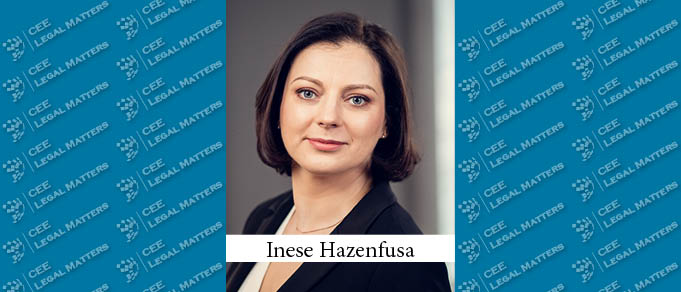High levels of market activity despite regional tensions and rising uncertainty relating to the war in Ukraine, an ever-more inclusive financial regulatory framework, and a blossoming energy sector are the hot topics in Latvia, according to TGS Baltic Partner Inese Hazenfusa.
“The relationship our country has with Russia and Belarus, or lack thereof, affects business activities on a daily basis,” Hazenfusa begins. “Clients require guidance from us at all times – the sanctions have created a situation where all must be ever vigilant and on the lookout for potentially crossing a red line.” Hazenfusa stresses that all businesses must be on alert for all transactions, “if any of the counterparties, or parties related to them, are already sanctioned or in a position to be sanctioned – this would lead to the deal not only falling through, but also being subject to criminal offenses.”
Still, such an approach is not foreign for businesses operating in the Baltic country. “Latvia has, in the past, had a very stringent framework for AML requirements – these have been loosened somewhat as of late and are more risk-based than they were before,” Hazenfusa continues. “We are familiar with KYC and, thus, compliance with sanctions is not a novelty for us.”
Moreover, Hazenfusa reports that “the capital market is still quite active when it comes to transactions in Latvia. The start of the war has halted this somewhat, but – with businesses getting accustomed to the new reality – things are getting back on track, and there is a relatively high number of bond issuances and IPOs on the market or in the pipeline,” she reports. According to her, Latvia historically has had a rather “quiet capital markets situation in comparison to its neighbors.”
From a regulatory point of view, Hazenfusa stresses that the Financial and Capital Markets Commission of Latvia has had “a good showing. This body used to be quite conservative and not as fond of innovative financial services, like fintech, for example. However, it has slowly been opening itself up more and reaching out to new players in the Latvian market,” she explains. “It is a big change in regulatory approach, and I hope that this trend will continue.”
Hazenfusa further reports that there is increased investor interest in the Latvian market as a consequence of “both our regulatory framework as well as the preparedness of the market to develop innovative services and products.” However, there are still instances where more needs to be done. “The country still has no concrete cryptocurrency framework introduced, on account of still waiting for the EU-wide regulation to be adopted. Businesses are waiting for this to happen, and there is a lot of investor interest, but crypto also comes with an entire set of AML concerns, and a clear and consistent regulatory framework is an absolute must,” she explains.
Finally, Hazenfusa reports that the energy sector is going strong. “More and more solar and wind projects are coming to fruition, and investor interest exists across the board and in various jurisdictions,” she reports. “This level of activity relates directly to the ESG framework, which has been increasingly taking shape lately. Now, more than ever before, businesses are getting a clearer picture of ESG procedures and related compliance and know both how to behave and what to expect,” Hazenfusa stresses. “It is still a process, but the status quo represents a very solid start,” she concludes.






















